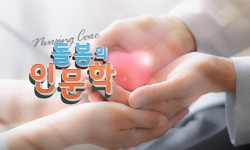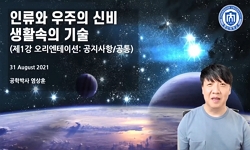본 연구는 조선후기 ‘완전한 인간됨’의 열망으로 성리학적 이론탐색을 통해 세상과 소통한 임윤지당의 사상을 규명하는데 목적이 있다. 윤지당은 성리학적 家風을 지닌 집안에서 임성주...
http://chineseinput.net/에서 pinyin(병음)방식으로 중국어를 변환할 수 있습니다.
변환된 중국어를 복사하여 사용하시면 됩니다.
- 中文 을 입력하시려면 zhongwen을 입력하시고 space를누르시면됩니다.
- 北京 을 입력하시려면 beijing을 입력하시고 space를 누르시면 됩니다.
https://www.riss.kr/link?id=A82393503
- 저자
- 발행기관
- 학술지명
- 권호사항
-
발행연도
2010
-
작성언어
Korean
- 주제어
-
등재정보
KCI등재
-
자료형태
학술저널
- 발행기관 URL
-
수록면
149-176(28쪽)
-
KCI 피인용횟수
2
- DOI식별코드
- 제공처
-
0
상세조회 -
0
다운로드
부가정보
국문 초록 (Abstract)
윤지당의 철학은 우주와 인간의 원리를 설명하고, 그것을 실천하는 방법을 중요한 과제로 인식하여, 리와 기의 일원적 본체관을 밝혔다. 기본적으로는 임성주의 리기론 체계를 수용하였지만 성범간에 ‘본연지성’은 차이가 없으며 구체적 상황속에서의 惡은 노력에 의해 극복될 수 있다는 점에 초점을 맞추고 있다. 이러한 리기관을 토대로 그녀의 이론은 性善을 근거로 한 인간 본성의 이해와 이를 실현해야 하는 당위성을 중심으로 수양의 필요성을 제기한다. 그리고 이러한 수양은 남녀를 불문하고 모든 사람들이 마땅히 실현시켜야만 하는 당면과제로 인식하였다. 또한 성인과 어리석은 사람의 차이를 순수한 성품은 같으나 부여받은 기질의 청탁에 따라 나뉜다고 주장하였다. 성인은 학문의 도야에 노력하고 사욕을 억제한다고 전제하고, 예법에 의한 실천의 중요성도 언급하였다. 윤지당은 남녀의 존재를 상호보완적으로 인식하였다. 또한 성품으로는 남녀의 차이가 있지 않고, 오직 사람만이 있으며, 현실에서의 남녀 차이는 하는 역할에 있다고 하였다. 이러한 윤지당의 태도는 주체적인 인간관을 제시하여 사회통념의 한계를 뛰어 넘어 대립과 갈등이 아닌 화해와 포용으로 세상과 소통하는 방법을 제시하고 있는 것이다. 결국 윤지당의 성리학 사상은 한마디로 ‘인간’의 문제로 요약할 수 있다.
본 연구는 조선후기 ‘완전한 인간됨’의 열망으로 성리학적 이론탐색을 통해 세상과 소통한 임윤지당의 사상을 규명하는데 목적이 있다. 윤지당은 성리학적 家風을 지닌 집안에서 임성주를 비롯한 가족들의 후원으로 어릴 때부터 학문할 수 있었다. 당시 사회적 분위기와 달리 여성의 교육에 우호적인 가정환경은 그녀가 학문에 정진하여 문집 『윤지당유고』가 편찬될 수 있는 배경이 되었다. 이 때문에 그의 저술은 동 시대 다른 남성 학자들에 비해 양적으로 많지는 않지만 수준 높은 철학적 사유를 보여준다. 그녀는 유교 경전과 史書 그리고 성리서들을 공부하면서 인간으로서의 자기 존재감과 동등함에 대해 깊이 고민하고 사색하였다. 그 결과 성리학적 명제를 자신의 사상적 기반으로 삼아 유학의 궁극적 이상인 성인론에 이르는 자신의 철학을 제시하였다.
윤지당의 철학은 우주와 인간의 원리를 설명하고, 그것을 실천하는 방법을 중요한 과제로 인식하여, 리와 기의 일원적 본체관을 밝혔다. 기본적으로는 임성주의 리기론 체계를 수용하였지만 성범간에 ‘본연지성’은 차이가 없으며 구체적 상황속에서의 惡은 노력에 의해 극복될 수 있다는 점에 초점을 맞추고 있다. 이러한 리기관을 토대로 그녀의 이론은 性善을 근거로 한 인간 본성의 이해와 이를 실현해야 하는 당위성을 중심으로 수양의 필요성을 제기한다. 그리고 이러한 수양은 남녀를 불문하고 모든 사람들이 마땅히 실현시켜야만 하는 당면과제로 인식하였다. 또한 성인과 어리석은 사람의 차이를 순수한 성품은 같으나 부여받은 기질의 청탁에 따라 나뉜다고 주장하였다. 성인은 학문의 도야에 노력하고 사욕을 억제한다고 전제하고, 예법에 의한 실천의 중요성도 언급하였다. 윤지당은 남녀의 존재를 상호보완적으로 인식하였다. 또한 성품으로는 남녀의 차이가 있지 않고, 오직 사람만이 있으며, 현실에서의 남녀 차이는 하는 역할에 있다고 하였다. 이러한 윤지당의 태도는 주체적인 인간관을 제시하여 사회통념의 한계를 뛰어 넘어 대립과 갈등이 아닌 화해와 포용으로 세상과 소통하는 방법을 제시하고 있는 것이다. 결국 윤지당의 성리학 사상은 한마디로 ‘인간’의 문제로 요약할 수 있다.
다국어 초록 (Multilingual Abstract)
Imyunjidang explained the principle of world and human and regarded the way to do it as the important problem. She, then, insisted on the monism of principle and material force. She, basically, accepted Im Seong-Ju’s theory of principle-material force. She, however, thought that there was no difference between the sage and ordinary person on the original nature and focused on being able to get over evil through effort in the concrete situation. On the basis of her theory of principle-material force, she also thought that human was good by nature and suggested the necessity of self-cultivation by laying il ess on the need for realizing the good nature.roreover, she considered the self-cultivation as the urgent problem necessarily achieved by both men and women. She also maintained that the distinction between the sage and ordinary person depended not on the original nature but on the ersity and imprsity of material force. She assumed that the sage would try to devote himself to his studies and mentioned the significance of practice by the teaching of propriee by theregarded the relationonons between men and women as s and mentaryby thethought that there was no difference between men and women on the character and they were equally human being. She also thought that there was the distinction between men and women on their roles in real life. On the basis of her subjective view of human being breaking away from social norms, her ideas suggests the way to communicate with the world not by the opposition and complication but by the reconciliation and tolerance. In conclusion, I think that her thought focuses on the human being.
The purpose of this paper is to bring light the thought of Imyunjidang communicating with the world by studying Neo-Confucianism with desiring earnestly for being complete person in the late of Chosun dynasty. She could study since childhood through t...
The purpose of this paper is to bring light the thought of Imyunjidang communicating with the world by studying Neo-Confucianism with desiring earnestly for being complete person in the late of Chosun dynasty. She could study since childhood through the sponsorship of her families including Im Seong-Ju having the family tradition of Neo-Confucianism. She could also devote herself to her studies and write Yungidangyugo, because she grew up in the home environment friendly attitude toward woman’s education, unlike the social atmosphere of her time. Her works, therefore, show the philosophical speculation of high standard although they are fewer than male scholars’. She contemplated her own presence and human equality by studying the Confucian scriptures, history books, and Neo-Confucianism books. Consequently, she suggested her own ideas which was the theory of sage ultimating ideal of Confucianism by building on Neo-Confucianism.
Imyunjidang explained the principle of world and human and regarded the way to do it as the important problem. She, then, insisted on the monism of principle and material force. She, basically, accepted Im Seong-Ju’s theory of principle-material force. She, however, thought that there was no difference between the sage and ordinary person on the original nature and focused on being able to get over evil through effort in the concrete situation. On the basis of her theory of principle-material force, she also thought that human was good by nature and suggested the necessity of self-cultivation by laying il ess on the need for realizing the good nature.roreover, she considered the self-cultivation as the urgent problem necessarily achieved by both men and women. She also maintained that the distinction between the sage and ordinary person depended not on the original nature but on the ersity and imprsity of material force. She assumed that the sage would try to devote himself to his studies and mentioned the significance of practice by the teaching of propriee by theregarded the relationonons between men and women as s and mentaryby thethought that there was no difference between men and women on the character and they were equally human being. She also thought that there was the distinction between men and women on their roles in real life. On the basis of her subjective view of human being breaking away from social norms, her ideas suggests the way to communicate with the world not by the opposition and complication but by the reconciliation and tolerance. In conclusion, I think that her thought focuses on the human being.
목차 (Table of Contents)
- 【요약문】
- Ⅰ. 들어가는 말
- Ⅱ. 『윤지당유고』의 의미
- Ⅲ. 윤지당 철학의 인간이해
- Ⅳ. 나가는 말
- 【요약문】
- Ⅰ. 들어가는 말
- Ⅱ. 『윤지당유고』의 의미
- Ⅲ. 윤지당 철학의 인간이해
- Ⅳ. 나가는 말
- 〈참고문헌〉
- 〈ABSTRACT〉
참고문헌 (Reference)
1 "栗谷全書"
2 김기주, "洛學과 湖學, 그 분화의 근원을 찾아서" 범한철학회 35 (35): 241-264, 2004
3 박용옥, "한국여성 근대화의 역사적 맥락" 지식산업사 2001
4 "정일당유고"
5 김재임, "임윤지당의 성리학연구" 성신여자대학교 2009
6 이영춘, "임윤지당" 도서출판 혜안 1998
7 "윤지당유고"
8 안병주, "유교의 이론보완: 페미니즘 수용과 관련하여" 철학과 현실사 2001
9 이영춘, "영정조대의 문예부흥과 임윤지당" (23) : 2006
10 김현, "성리학적 가치관의 확산과 여성" 민족문화연구원 (41) : 455-488, 2004
1 "栗谷全書"
2 김기주, "洛學과 湖學, 그 분화의 근원을 찾아서" 범한철학회 35 (35): 241-264, 2004
3 박용옥, "한국여성 근대화의 역사적 맥락" 지식산업사 2001
4 "정일당유고"
5 김재임, "임윤지당의 성리학연구" 성신여자대학교 2009
6 이영춘, "임윤지당" 도서출판 혜안 1998
7 "윤지당유고"
8 안병주, "유교의 이론보완: 페미니즘 수용과 관련하여" 철학과 현실사 2001
9 이영춘, "영정조대의 문예부흥과 임윤지당" (23) : 2006
10 김현, "성리학적 가치관의 확산과 여성" 민족문화연구원 (41) : 455-488, 2004
11 "鹿門文集"
12 "自著著草"
13 "星湖塞說"
14 "性理大全"
15 손홍철, "18세기 조선성리학과 임윤지당의 철학" 원주문화원편 2002
동일학술지(권/호) 다른 논문
-
- 한국양명학회
- 신현승(Shin Hyun-seung)
- 2010
- KCI등재
-
차이의 철학으로서의 이탁오의 ‘음양남녀론’에 대한 여성주의 이해
- 한국양명학회
- 김세서리아(Kim Se-seo-ri-a)
- 2010
- KCI등재
-
- 한국양명학회
- ?祖?
- 2010
- KCI등재
-
- 한국양명학회
- ?井啓一
- 2010
- KCI등재
분석정보
인용정보 인용지수 설명보기
학술지 이력
| 연월일 | 이력구분 | 이력상세 | 등재구분 |
|---|---|---|---|
| 2027 | 평가예정 | 재인증평가 신청대상 (재인증) | |
| 2021-01-01 | 평가 | 등재학술지 유지 (재인증) |  |
| 2018-01-01 | 평가 | 등재학술지 유지 (등재유지) |  |
| 2015-01-01 | 평가 | 등재학술지 유지 (등재유지) |  |
| 2011-01-01 | 평가 | 등재학술지 유지 (등재유지) |  |
| 2009-01-01 | 평가 | 등재학술지 유지 (등재유지) |  |
| 2006-01-01 | 평가 | 등재학술지 선정 (등재후보2차) |  |
| 2005-05-30 | 학술지명변경 | 한글명 : 陽明學 -> 양명학 |  |
| 2005-01-01 | 평가 | 등재후보 1차 PASS (등재후보1차) |  |
| 2004-01-01 | 평가 | 등재후보학술지 유지 () |  |
| 2003-01-01 | 평가 | 등재후보학술지 선정 (신규평가) |  |
학술지 인용정보
| 기준연도 | WOS-KCI 통합IF(2년) | KCIF(2년) | KCIF(3년) |
|---|---|---|---|
| 2016 | 0.63 | 0.63 | 0.46 |
| KCIF(4년) | KCIF(5년) | 중심성지수(3년) | 즉시성지수 |
| 0.42 | 0.39 | 1.123 | 0.06 |




 ScienceON
ScienceON DBpia
DBpia






